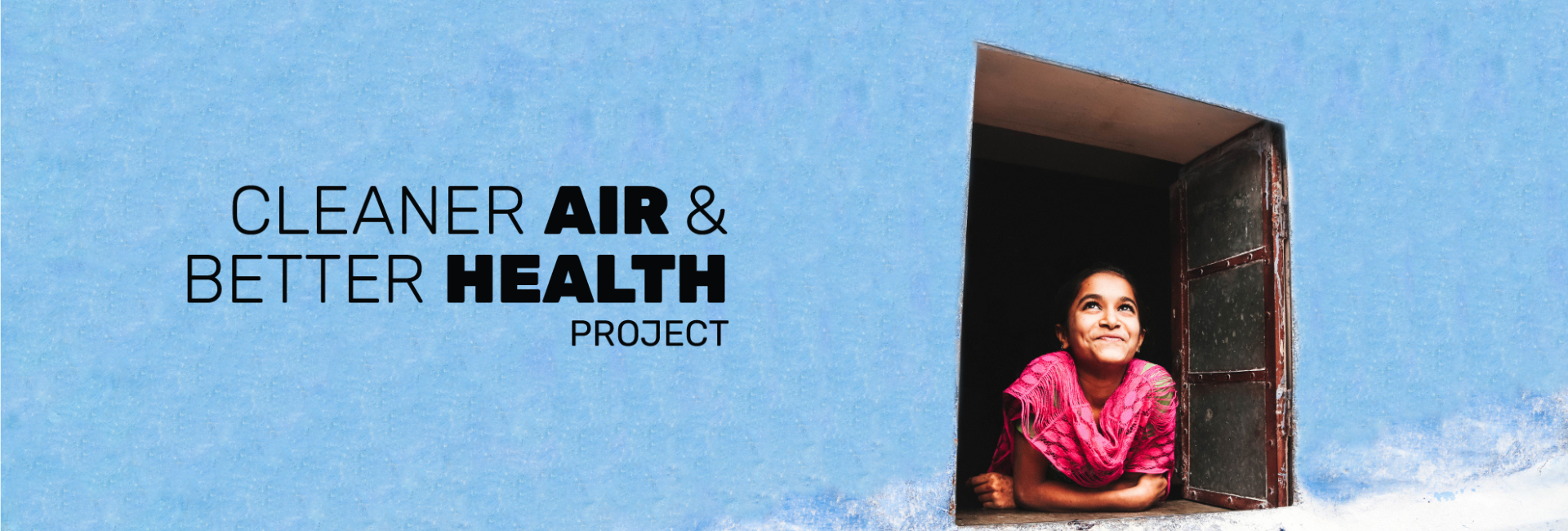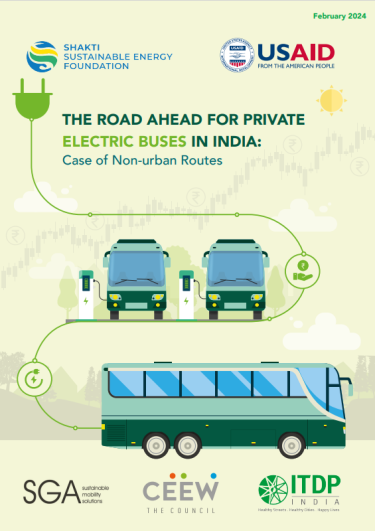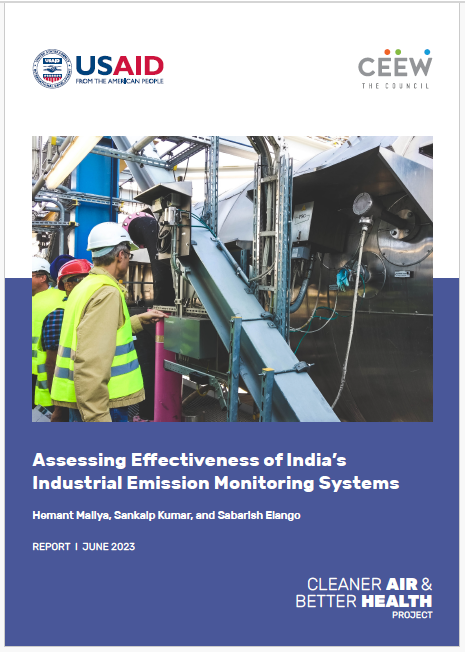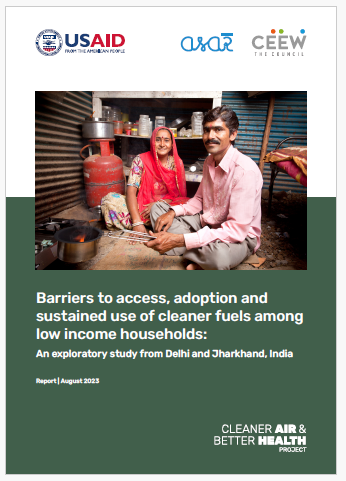



Cleaner Air and Better Health (CABH) is a five year (2021 to 2026) project supported by the United States Agency for International Development (USAID). It aims to strengthen air pollution mitigation and reduce exposure to air pollution in India by establishing evidence-based models for better air quality management.
The project is being implemented by a consortium led by the Council on Energy, Environment and Water and includes Asar Social Impact Advisors, Environmental Design Solutions, Enviro Legal Defence Firm, and Vital Strategies.
Driving electrification of vehicles in India
USAID and CEEW hosted a roundtable on 'Alternate Mobility Solutions to meet Paratransit Demand' at the 16th Urban Mobility India Conference and Expo 2023, organised by MoHUA. It brought together key stakeholders, including subject experts, practitioners, multilateral development organisations, and the OEMs, to discuss and align on the need for a new segment in urban transportation, which can offer efficient and affordable mobility.
Collaboration to reduce air pollution from construction activities
The first ‘clean construction pilot site’ was launched by Signature Global with technical support from CEEW. The site has an air quality monitoring and management dashboard where data is sourced from the pollution mitigation technology that was deployed on site. The project will assess how self-regulation of emissions from construction activities and the use of behavioural nudges on construction sites can reduce the local air quality impacts of construction sites and encourage other real estate developers to also adopt similar pollution-monitoring and control methods.
CEEW and USAID hosted a national dialogue on 'Cleaner Air Better Health' (CABH) initiative: Innovating Pathways to Scaling Solutions
It brought together key stakeholders from government bodies, media, academia, industry, and civil society organisations to deliberate on the multiple approaches to mainstream evidence, successes and technology to improve air quality at scale with a focus on mitigating health impacts. The event also featured an exhibition – Hawa ke Saathi (friends of the air) – that showcased prototypes of clean air solutions and interventions. Some of the innovations featured included battery-powered wearable heating solutions, natural-gas furnace for handicrafts, electric CRM machines, green hydrogen cook stove, and the five schools’ technology solutions under the Ideator Fellowship.
Watch the Dialogue
Amritsar Smart City Limited and CEEW launch electric autorickshaw pilot ‘Sadak Ke Sartaj’ for green transition
The behaviour change intervention is providing approximately 300 diesel auto drivers with first-hand experience of e-autos over the course of three months.
This pilot project will provide approximately 300 diesel auto drivers with first-hand experience of e-autos over the course of three months. The initiative was flagged off by Shri Harpreet Singh, IAS, Commissioner, Municipal Corporation, Amritsar and saw the participation of government stakeholders, drivers, Pradhans (local influencers) and artists as this was a locally-led initiative aimed at transitioning the city’s existing diesel autorickshaw fleet to electric to increase incomes, mitigate air pollution, and help the city go green.
Convening on gender-responsive E3W transition in Amritsar
Asar Social Impact Advisors and CEEW co-hosted a convening to build consensus on a tailored, inclusive and supportive framework that removes barriers, allowing women to engage in the e-auto sector. The event saw participation from MLAs and the Additional Deputy Commissioner, Amritsar. Over 240 women interested in adopting this alternative livelihood opportunity (with support from Clean Air Punjab) also participated, including four new Self-Help Groups (SHGs) set up with support from CEEW, specifically established to enable women's active participation and access to pink e-autos. In the following month MoHUA approved 200 Pink-Autos with a 90 per cent subsidy under the RAAHI scheme to make the city's e-auto transition more gender-inclusive.
Building capacity on indoor air quality
Environmental Design Solutions (EDS) is conducting the ‘Breathe-In’ dialogues jointly with the Society for Indoor Environment (SIE) as the knowledge partner. The ‘Breathe-In’ dialogues include a series of webinars to generate a community of professionals with know-how on indoor air quality issues, concerns and solutions and is focused on four themes - Regulatory convergence, Integrated design and technology, monitoring and management, and occupant awareness and communication.
Breaking barriers to shifting to clean cooking fuels
USAID, Asar Social Impact Advisors in collaboration with CEEW launched a report titled - ‘Barriers to access, adoption and sustained use of cleaner fuels among low-income households: An exploratory study from Delhi and Jharkhand, India’ with Shri Kushagra Mittal, Deputy Secretary (LPG), Ministry of Petroleum and Natural Gas and Dr Vandana Bagga, Director, Directorate of Family Welfare, Government of NCT of Delhi at India Habitat Centre in August 2023. The recommendations in the report are aimed at accelerating the transition to clean cooking practices with an emphasis on behaviour change campaigns and more incentives for adopting cleaner fuels, as LPG access alone does not guarantee sustained use unless refills are made affordable.
Enhancing the use of data in reporting on air pollution
USAID and Vital Strategies convened over 25 health- and climate- focused journalists from across six states for a two-day workshop in Goa to share best practices in and enhance the use of data in reporting on air pollution. The workshop included identifying sources of health data and evaluating public health claims, using credible data to inform stories, and discussions around challenges and opportunities to create evidence-based, compelling stories around air quality in India. The discussion
also included sharing of experiences and ideas on how to humanise data or boosting data transparency to build a better understanding among its readers on the issue.
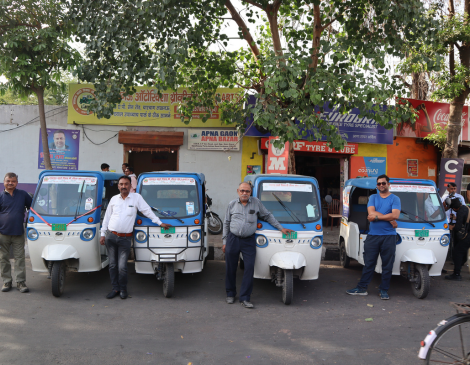
To enable energy transitions at the community and systems level, the project is developing a natural-gas-based furnace for artisans, and providing technical support for electrification of public transportation and improving the level of services of city bus services. CEEW has been assessing the effectiveness of India's Continuous Emission Monitoring Systems (CEMS) to determine how it can be better leveraged to manage industrial emissions.
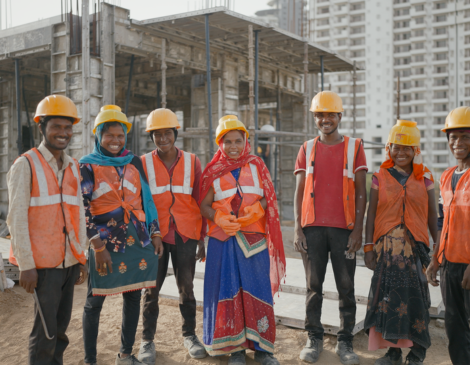
The project is demonstrating the use of data and sustainability of knowledge products and platforms to mitigate air pollution and inform decision making. CEEW deployed pollution monitoring and management technology at a construction site. ELDF is developing the Vayulex portal to strengthen the legal framework for air quality management. Vital Strategies is supporting NPCCHH to strengthen data systems to measure health impacts of air pollution from sentinel surveillance sites. EDS is drafting protocols on monitoring and management of indoor air pollution.
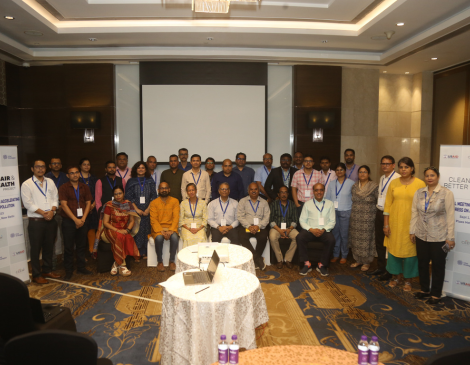
With a focus on designing scalable solutions for environmental health surveillance, Vital Strategies is providing support to Madhya Pradesh and Bihar, and National Centre for Disease Control (NCDC) in the implementation of the National Programme on Climate Change and Human Health (NPCCHH) activities while training health workers on air pollution and health related illnesses.
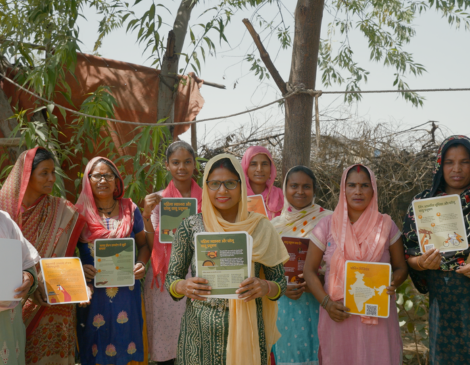
12 clean air action hubs in Non-Attainment Cities (NAC) activated by Asar to lead the discourse on air quality. State level leadership convenings and media workshops also conducted on air quality in West Bengal, Punjab and Maharashtra. As gender and social inclusion is an intrinsic part of the project, 3869+ women were trained on household air pollution (HAP) and clean cooking. CEEW is also developing the first model with SHGs as micro-distributors of LPG to improve distribution and access to LPG.
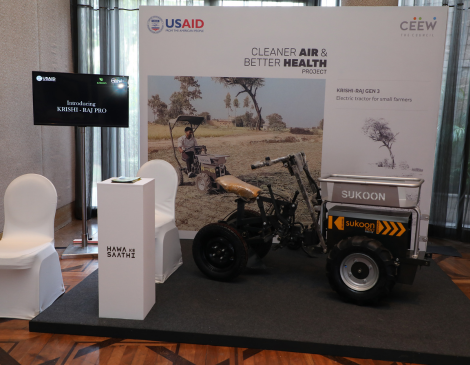
The project is enabling start-ups in independent evidence generation and the development and testing of products - CRM solution for small landholding farm owners; solar-powered, green-hydrogen cookstove; battery-based portable winter heating solutions for watchmen and night workers.
